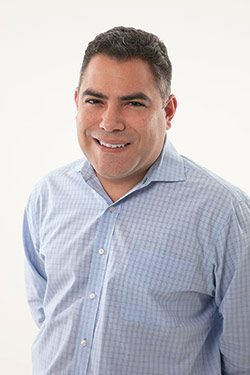 I have a butterfly tattoo. There, I said it. I’ve actually been kind of closeted about my tattoos. (I currently have two, to be exact, but I reserve the right to get more!) But there does seem to come a time for everything, even this somewhat silly “coming out” about my tattoos.
I have a butterfly tattoo. There, I said it. I’ve actually been kind of closeted about my tattoos. (I currently have two, to be exact, but I reserve the right to get more!) But there does seem to come a time for everything, even this somewhat silly “coming out” about my tattoos.
As an HIV-positive gay man, I believe that coming out is never-ending. I will hopefully continue to meet new people until my last day. And I will probably come out to them about something—my status, my orientation, my tattoos—every time. I’ve grown to like the process. Not many other moments offer you the chance to educate at the same time you separate the wheat from the chaff.
So it is with coming out that the things you disclose often aren’t as terrible as you feared, yet the unburdening is even more freeing than you imagined. Such was the case for our cover gals, Whitney Joiner and Alysia Abbott. Each lost her gay dad to AIDS in 1992—and Whitney didn’t know anyone else who had lost a parent to the virus until she met Alysia about 15 years ago.
They stayed in touch, but the years passed by. Then, in 2014, an event co-sponsored by Visual AIDS about the children of parents lost to AIDS spurred Whitney and Alysia to launch the Recollectors, a group dedicated to remembering parents lost to the virus. Click here to read more about the Recollectors and remembrances of their loved ones.
In recognition of June as LGBT Pride Month, in addition to the Recollectors story, this issue includes other sometimes underrepresented LGBT-related perspectives. An essay by gay activist, author and blogger Mark S. King, for example, reflects on his relevance as a long-term survivor in the here and now. Click here to read his journey.
Although it’s arguable that Gay Men’s Health Crisis (GMHC) itself is not underrepresented, it’s undeniable that the concerns of the people GMHC serves often are. Kelsey Louie, the new CEO of GMHC, has lifted those voices in his first year on the job. Arguing for a grassroots push for an HIV cure is a recent example. Click here for our Q&A with Kelsey.
GMHC co-founder Larry Kramer is the subject of a new documentary by Jean Carlomusto. The film marks the occasion of his 80th birthday with an intimate look at his life. Click here to read more about the film, as well as learn more about the role of lesbians like Jean in the history of ACT UP.
In addition to lesbians, other often underrepresented members of the LGBT acronym are bisexuals and trans people. Click here to read Khafre Abif share his story as an HIV-positive African-American bisexual father of two. And here, Kris Hayashi, executive director of the Transgender Law Center, offers insights on inequities faced by trans people.
Advertisement
Advertisement
Advertisement






Comments
Comments